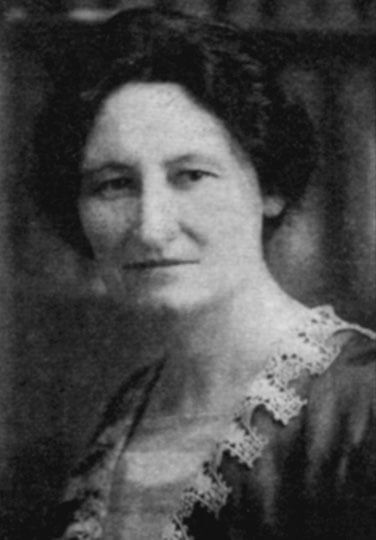We’ve all heard the names John and Charles Wesley, but there are a lot of other important names in the history of Methodism you may not know. The Unsung Heroes of Methodism series tells the stories of lesser-known figures whose lives and witness still impact The United Methodist Church today, even if their names aren’t familiar to us.
Mabel Madeline Southard was a gifted Methodist preacher, a pioneering feminist theologian and a fierce advocate for women’s ordination in the church. Though never ordained as a full elder herself, her courage and conviction paved the way for generations of women called to ordained ministry.
Meet more heroes
Born in Kansas in 1877, Southard grew up during a period where women were expected to devote all their time to being wives and mothers without pursuing their own careers or vocations. Despite these expectations, many women of the Late 19th Century attended college and were more highly educated than previous generations.
Southard attended Southwestern College in Winfield before earning her master’s degree from Garrett Bible Institute (now Garrett-Evangelical Theological Seminary) in 1919. That same year, she founded the International Association of Women Ministers (IAWM), an interdenominational organization dedicated to advocating for and supporting women in ministry. That same year she published an article entitled “Women in the Ministry,” which challenged the era’s popular arguments against female leadership in the church.[1]
In 1920, Southard was elected as a delegate to General Conference, where she distributed literature and delivered passionate appeals for the full ordination of women in the Methodist Episcopal Church (MEC). She introduced a resolution calling for complete “ecclesiastical equality for women.” Although the measure was narrowly defeated, it marked a significant step forward in the long struggle for gender equality in the Church.[2]
As a preacher, Southard was known for her tenacity and boldness. She often spoke in the open air—on street corners and town squares—and was an outspoken advocate of the temperance movement. She even accompanied Carrie Nation on her famous saloon-smashing campaigns.[3]
Throughout her life, Southard remained a steadfast champion of gender equality in the church. Under her leadership, the IAWM grew to include 24 countries and 35 denominations and launched its own journal, “The Woman’s Pulpit”, to which Southard contributed frequently.[4] The IAWM inspired later women’s advocacy groups, including the General Commission on the Status and Role of Women (GCSRW).
Timeline of M. Madeline Southard's Life
1899: Graduates from Southwestern University in Winfield, Kansas
1917: Enrolls at Garrett Bible Institute (later Garrett-Evangelical Theological Seminary)
1920: Graduates from Garrett. Attends the Methodist Episcopal Church General Conference where she introduces resolution calling for “ecclesiastical equality” of women in the Church. Founds the International Association of Women Ministers (IAWM)
1924: Attends General Conference again where a resolution offering women “conditional ordination” is passed
1925: Licensed as a local pastor
1927: Publishes "Attitudes of Jesus Toward Woman"
1928-1933: Serves as a missionary in India and the Philippines
1956: The Methodist Church (precursor to The UMC) passes resolution recognizing full and unconditional ordination of women within the denomination
1967: Southard dies at the age of 90
Southard served as a delegate again to the 1924 General Conference. Thanks to heavy petitioning by her and others, the MEC voted to grant women the right to be licensed and ordained—but without full clergy membership, guaranteed appointments, or pensions.[5] This partial victory was rolled back in 1939 when the MEC merged with the Methodist Episcopal Church South and the Methodist Protestant Church, neither of which recognized women’s ordination. Southard herself was licensed as a local pastor but was never ordained as an elder.[6]
Over the course of her ministry, Southard wrote extensively. Her articles and books are the work of a sharp theological mind. In her master’s thesis, “The Attitude of Jesus Toward Woman”, she argued that women should be regarded as full individuals with the same autonomy and potential as men, not merely defined by domestic roles such as wife, mother, or daughter.[7] Southard also served as a missionary as a missionary in India and the Philippines from 1928 to 1933.[8]
Southard died in 1967 at age 90. She lived long enough to see her lifelong dream realized when the Methodist Church approved full ordination for women in 1956.[9] Until her death, she continued encouraging other denominations to follow suit. Her writings are preserved today in the Schlesinger Library at Harvard University.
[1] Irons, Kendra Weddle. “From Kansas to the world: M. Madeline Southard, activist and pastor.” Methodist History, 43:1 (October 2004).
[2] Russell, Richey E. and Rowe, Kenneth E. The Methodist Experience in America: A History Volume 1. Nashville: Abingdon Press, 2010.
[3] Du Mez, Kristin Kobes. “Selfishness One Degree Removed.” Priscilla Papers: An Academic Journal of CBE International. Vol 28, No 2. Spring of 2014.
[4] Russell, Richey E. and Rowe, Kenneth E. The Methodist Experience in America: A History Volume 1. Nashville: Abingdon Press, 2010.
[5] Idem.
[6] “Clergy Women Promote Hope and Healing” by Rev. Emily Nelms Chastains. March 30, 2022.
[7] Irons, Kendra Weddle. “From Kansas to the world: M. Madeline Southard, activist and pastor.” Methodist History, 43:1 (October 2004).
[8] “The Woman’s Pulpit.” International Association of Women Ministers. July-September 2021.
[9] Clergy Women Promote Hope and Healing” by Rev. Emily Nelms Chastains. March 30, 2022.





